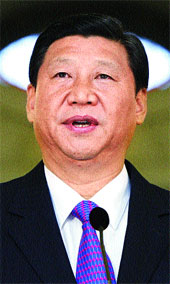 |
You returned to Odisha after almost three-and-a half decades of staying in Delhi and carving out a niche as a neurologist. Do you feel you have taken the right decision by leaving a lucrative career to assume the responsibility of a new medical college here?
Many people have termed it as foolishness, but I don’t think so. Decision-making is not easy. Even when I joined the Sanjay Gandhi Post-Graduate Institute of Medical sciences in Lucknow, people said I was mad. However, I did my best to improve the situation.
What is it like to head AIIMS-Bhubaneswar?
It is like jumping into the ocean. It was a conscious decision to come back to my home state as it is in urgent need for better health care facilities. The poor will benefit from the AIIMS centre here.
You have expressed dissatisfaction over the slow progress of work at the centre. What were your expectations when you agreed to take over as the director?
I would have been a hundred times happier if the medical college was ready and I just had to go straight into the operation theatre for surgeries. But now my role has changed. I am more of a project manager, supervising the construction and procurement of equipment. However, things have improved in the past six months. We have proper departments. I have resorted to saam, daam, dand, bhed (using influence, paying money, punishment and divide-and-rule) to get the work done.
Do you have adequate faculty members?
Of the 90 posts sanctioned in the first phase, we have been able to fill up only 46. People from outside don’t want to come to a small city such as Bhubaneswar. Getting quality faculty is a challenge.
How do you expect to solve this problem of faculty vacancy?
We don’t want to dilute medical education here, so we would rather wait for more time than hurriedly fill up the posts with mediocre faculty.
Do you get adequate support from the government?
It will not be fair if I say they have not lent support. The state government have given us required land and an extra 50 acre too. The entire machinery cannot be blamed. The problem is with individuals handling various things. I have found that it is hard to push for a thing. Everybody likes to talk about honesty and accountability but when it comes to proving it, they just skip their duties.
Have you started the general outpatient department?
Yes. We see 10 to 15 people daily. Of the 1,500-odd patients we have attended to so far, 20 per cent have neurological problems. As I am here, patients come with special requests.
What is your assessment of medical education in Odisha?
There has been a phenomenal change over the years. Education in government colleges is not bad. However, our colleges do not figure among the best 10 medical institutes of the country. Besides, I am in favour of establishing more private medical colleges. We need one lakh doctors but are producing only 35,000 to 40,000.
What is your view on the government’s policy that medical students have to serve at least three years in rural areas after graduation or pay a hefty fine?
This is not a simple issue. You cannot compare a doctor with a teacher or tehsildar. Doctors should be given enough encouragement and higher monetary benefits. They should be assured that once they finish their tenure, they will be given a good posting.
Many private medical colleges are mushrooming in the state. Do you think AIIMS will be able to compete with them?
You cannot compare private institutions with AIIMS, which is cheaper, more reliable and the doctors do not have any motive to exploit patients.
How long will it take for AIIMS-Bhubaneswar to attain the status of AIIMS-Delhi?
One cannot compare a 60-year-old grandfather to a newborn baby. Our focus now is on quality service to patients like it is given in Delhi. We may not be able to operate 5,000 neuro surgeries, but the success ratio would at least match that of AIIMS-Delhi.
What would you have been had you not been a doctor?
I would have been an engineer. That is what my father expected of me.
During my times medicine and engineering were the most preferred career and by and large good students used to opt for the latter. But towards the end of 60s, engineers were not getting employed.
However, the advantage of being in medical profession was that you didn’t have to depend on a government job.
A doctor’s salary was Rs 325 then, which was equivalent to what a class-II officer of the Odisha government used to earn.
So, I convinced my father that I wanted to study medicine. The way a doctor can serve the common man, an engineer cannot.










